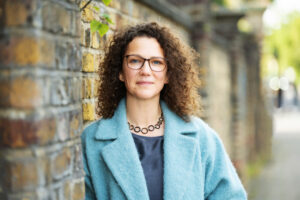We think of stranded assets as oil and gas ‘reserves’, commodities whose value can’t be realised as economic and environmental policies change.
Since our second Three Horizons session last month, and coming across the lesser known educator and futurist Warren Ziegel and his work on social change, I’ve been also thinking about the stranding of relational assets.
Ziegel talks (in 1974) about the value of civic participation only being realised as a collective. It’s not something that happens individually. The social benefit, is interdependent with other people.
This connects with later theories of dialogue and organisational development (Chris Argyris et al). How we understand and consciously engage in the patterns of what’s happening around us is tied up with our ability to do this with other people.
So back to the Three Horizons.
This framework recognises differences in how we engage with the patterns of change that are occurring around us. Exemplified by a focus on the present system and delivering in the here and now (Horizon 1); and a recognition that the present system is no longer fit for purpose and requires intentional change (Horizons 2 and 3).
We typically belong to the archetypes of manager (Horizon 1), entrepreneur (Horizon 2) and visionary (Horizon 3).
But like commodities that are stranded, the value of each and all of us in these time horizons can’t be realised without the other.
Visionaries and entrepreneurs need that deep understanding of the current system, that comes from the people who are living and breathing what is occurring, in order to understand how to engage with people for change. The history of a place, the deeply held beliefs and cultural systems, that might appear as ‘difficult’ but with an agnostic frame are simply what drives what is occurring.
The ‘diligent leaders’ who have to keep ‘flying the plane’ need the deep understanding of what is occurring in those transitional places, that are coalescing resources around approaches that are more fit for future purposes, to direct their precious development resources to the right places.
But the more pressured we are, in systems under stress, the more difficult it is to reach out to people across different systems.
We need to keep two things in mind:
Our focus on ‘others’. Diversity by design, necessary for meaningful change, means we need to start by valuing people where they are, and seeing the potential in their assets.
Our focus on social infrastructure, the open talks or community places that encourage the flow of communication across traditional professional, social, spatial boundaries.
Let’s see if we can unlock more of the assets in ourselves and others, for good.
Current series of online Everyday Futures practice sessions can be booked here.
17 October – Futures Triangle
21 November – Causal Layered Analysis
